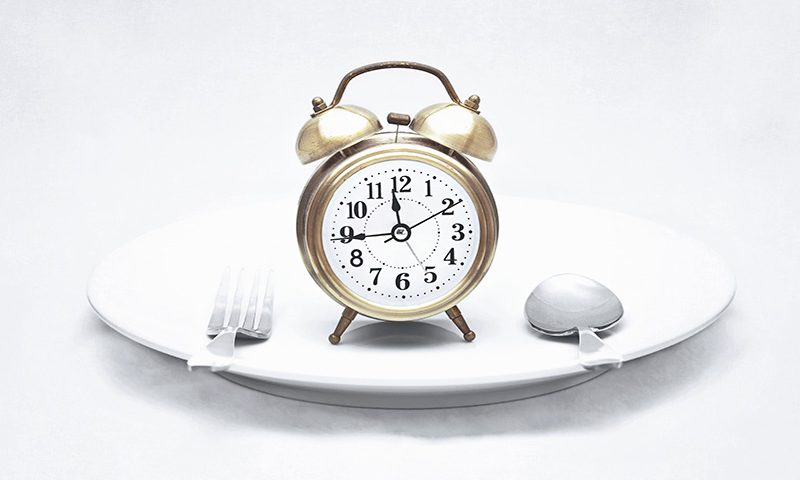
Yoga for Sciatica
10th August 2017
Fire Cupping – Chinese hokum or healing treatment?
18th August 2017The Benefits of Ekadasi Fasting

The Benefits of Ekadasi Fasting | Ana Heart Blog
To some, fasting can seem like an extreme process; however, intermittent fasting and partial fasts can have many benefits for our health and well-being. Ekadasi fasting is a process by which a person uses the position of the moon to inform of which days will be best for them to abstain from eating. This interesting topic is one that can divide opinion among even the experts. If you’ve ever wondered about fasting or this specific type of fasting, you’ve come to the right place. Discover everything from fasting’s biological to spiritual aspects, both of which are rich and storied.
Can Fasting be Healthy?
The idea of not eating for an entire day may seem unhealthy, but in this age of excess, a break can be good for our bodies. Drinking plenty of water and eating light foods can be a great way to kick start a health boost. This process can take away many temptations in our lives, which we know is bad for our health. Many diets, such as the 5:2 diet and intermittent fast diet, will tell you to pace your eating and to have days without food at times. These western diets may seem acceptable while eastern fasting practices seem extreme. Fasting has been researched by both eastern and western scientists, though it can be hard to determine exactly whether it’s a healthy or unhealthy practice.
Some of the oldest religions in the world contain an element of fasting. Ramadan and Ekadasi fasting are just a few examples. No one is forced to take part in these practices, but the feeling of community can often help to get them through the process as a collective rather than individual.
Fasting vs. Overeating
Eating junk food and drinking alcohol on a regular basis are both incredibly unhealthy. A day of fast and reflection can start us down a path of healthiness once more. Even taking a day of minimal food can help us to appreciate the food that we are lucky enough to enjoy on a regular basis. Excess can be just as harmful, if not more dangerous in the long run than going without food for a day or two.
The health problems common in a western diet are those that come from excess. High blood pressure, heart problems, and cholesterol can all be linked to overeating, with many doctors advising a radical approach for those that are overweight. If you struggle with your diet then cutting out food for hours or days can be more effective than trying to cut down, combined with healthier choices.
Many of the foods that we eat every day are highly-addictive; take sugar, for example. Processed sugar is found in everything from chocolate to baby food, which gets us hooked from an early age. Taking a day or two away from these products might just show you how reliant you are on them.
Where does Ekadasi Fasting come from?
Let’s start with the origins of Ekadasi fasting. It is of Hindu origin and is a celebration of Lord Krishna, with those that fast on the day receiving special favour. It falls on the 11th lunar day, which happens twice in each month, and many choose to fast for the entire day to show tribute to Lord Krishna. This practice has been a part of the Hindu religion for many years, with faithful followers believing that it will influence their lives for the days in between fasting. Those from the ages of eight to 80 are expected to take part unless a medical issue prevents them from doing so. To the most extreme degree, this also includes abstaining from drinking any liquids, though it’s not entirely necessary.
Devotional services and prayers are common on these days, with many taking to temples to show their commitment. Chanting and services can be heard for miles around, as devotees take to holy places in droves. As with much of Hindu culture, this has been transported to the western world, and Ekadasi fasting is now common here across Europe, the United Kingdom, and the United States, too.
Is Fasting Always Linked to Religion?
You don’t have to be religious to fast, as it offers many benefits outside of the religious element. Those that follow Hindu culture will be aware that there is an emphasis placed on not eating, nor drinking too much. These two days can be taken as a break from normal life to practice mindfulness and wellness in general. If you’re a yoga or meditation enthusiast, then fasting days can be perfect for getting in touch with your inner self. When not bogged down by heavy foods or obsessed with eating, we can often meditate and reach layers of peace that would otherwise be impossible. Some yogis practice fasting for this reason, and many teachings say that you should never overeat before or after meditation, as this will cause you to be too aware of your body’s energy.
Many people use Ekadasi fasting as a starting point for their fasting schedule but then personalise the process. For example, if you find that the entire day is too much for you, you can introduce light snacks or protein shakes. There are no hard and fast rules; just listen to what your body tells you.
Is fasting for you?
To be sure of what to expect while fasting and whether it is healthy for you, consult a medical professional. Your doctor will be able to advise whether fasting is a method that you should use or whether it will prove detrimental to your health. Those that are suffering from certain illness or other factors may find that fasting is not suitable for them. If you are pregnant, you should avoid fasting completely. If you’re healthy and curious, give fasting a go and discover its many benefits.

